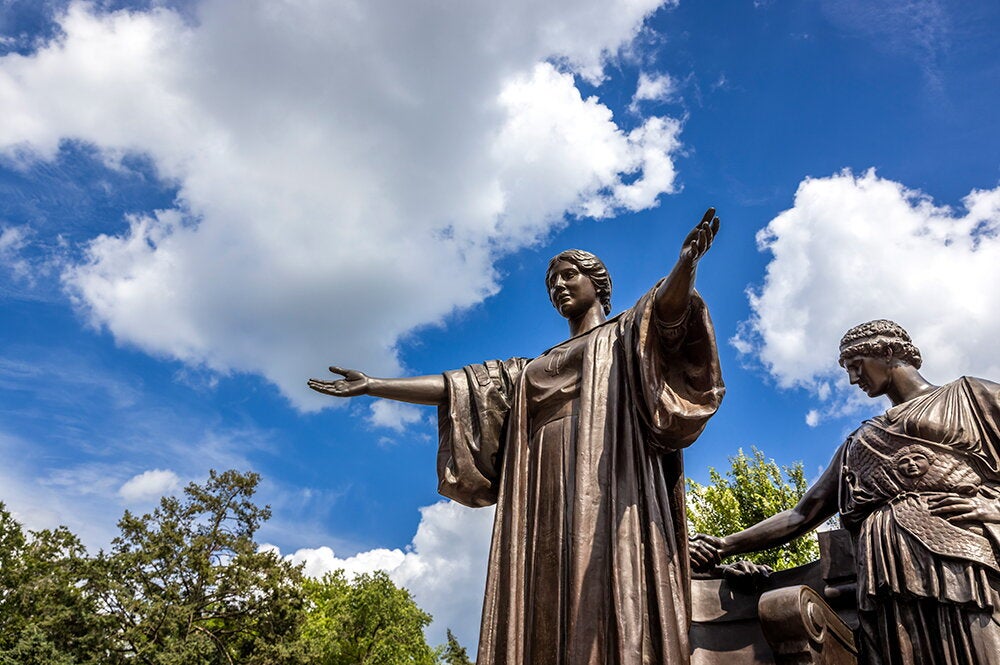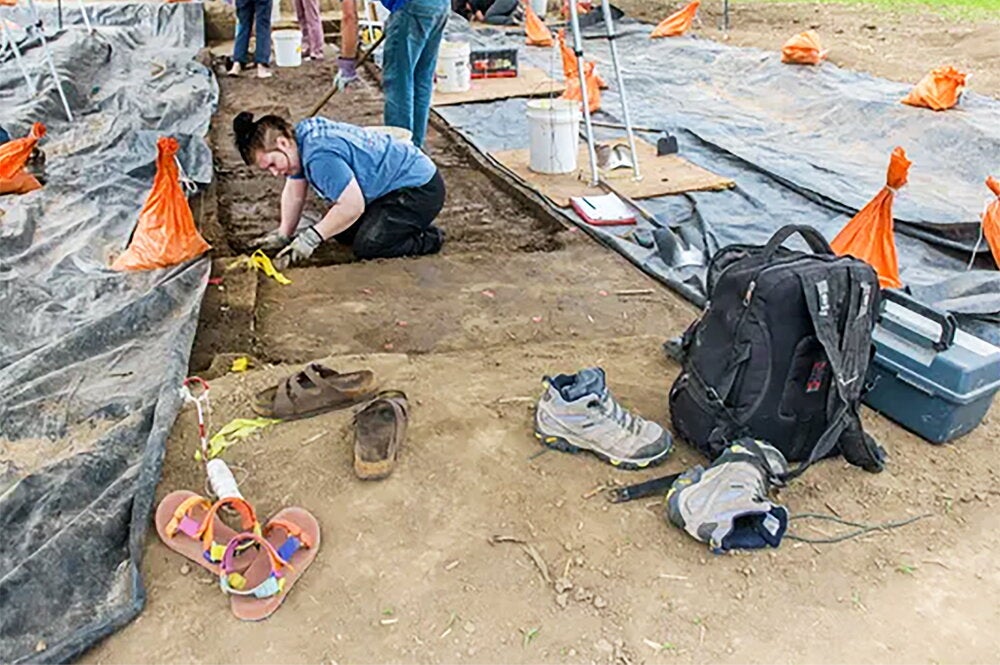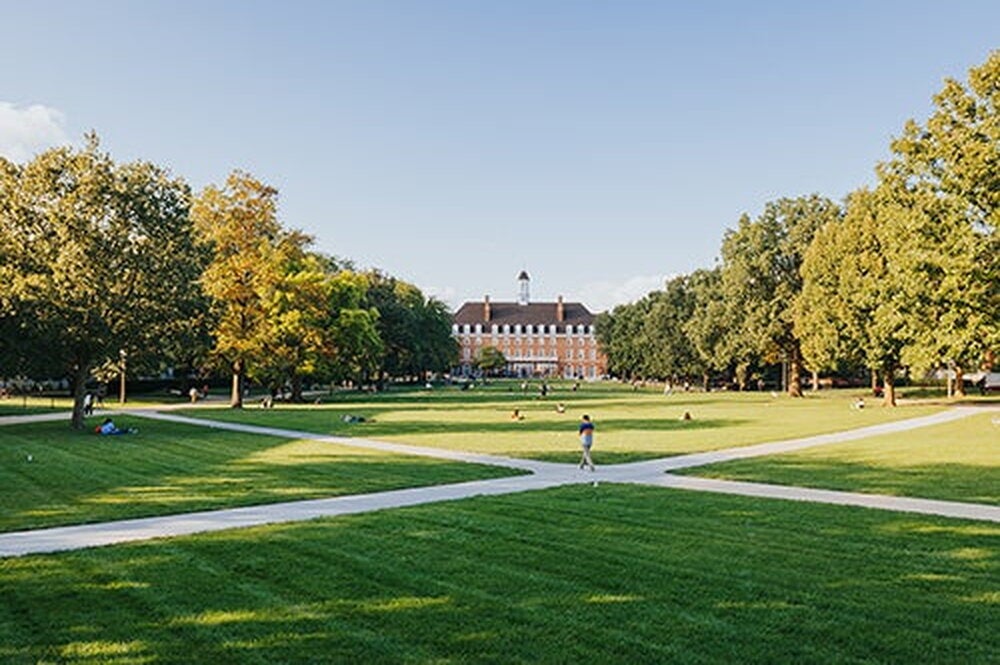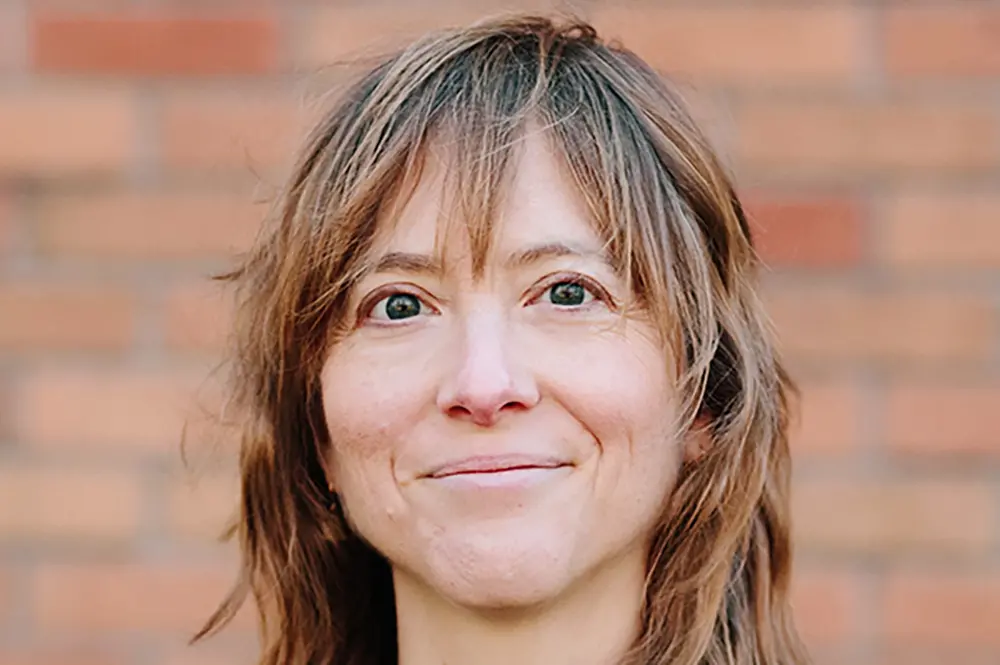
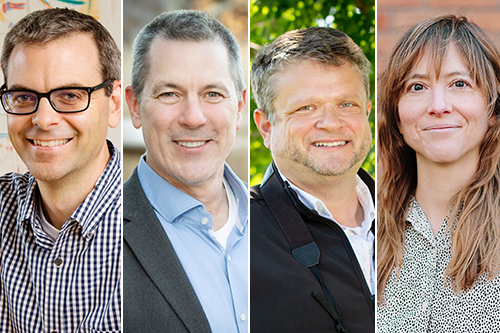
Eight College of LAS faculty members have been elected 2021 fellows of the American Association for the Advancement of Science, one of the highest honors for a scientist in the United States. They are among 14 on campus who were recently selected for the association.
The new fellows from LAS include chemistry professor Martin Burke; cell and developmental biology professor Brian Freeman; evolution, ecology, and behavior professor Mark Hauber; plant biology professor Katy Heath; anthropology professor Lyle Konigsberg; anthropology professor Ripan Malhi; civil and environmental engineering and geography and geographic information science professor Murugesu Sivapalan; and geography and geographic information science professor Shaowen Wang.
Burke, the May and Ving Lee Professor for Chemical Innovation, is pioneering the field of “molecular prosthetics,” small molecules that mimic the functions of deficient proteins, and a Lego-like platform for automating molecular synthesis. He led the SHIELD Team at Illinois. He also is a professor in the Carle Illinois College of Medicine, the Beckman Institute for Advanced Science and Technology and the Carl R. Woese Institute for Genomic Biology at Illinois.
Freeman’s research team focuses on three central nuclear processes – transcription, chromatin remodeling, and genome reorganization – to better understand how these systems maintain, or fail to maintain, homeostasis. His work is relevant to aging-related diseases, metabolic disorders, and cancer.
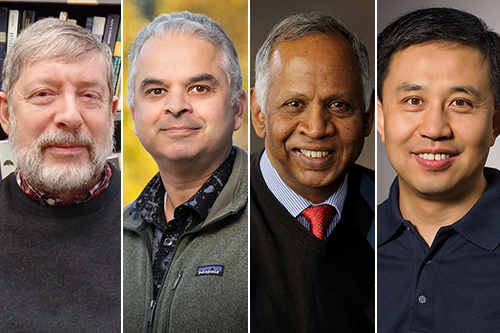
Hauber, the Harley Jones Van Cleave Professor of Host-Parasite Interactions, is a neuroethologist, behavioral ecologist, and comparative psychologist whose work focuses on the evolution of recognition systems in birds. He is a professor in the Beckman Institute for Advanced Science and Technology, the Carl R. Woese Institute for Genomic Biology, and the Illinois State Natural History Survey at the U of I. He is a fellow of the American Ornithological Society and the Animal Behavior Society.
Heath studies the evolution of mutualistic relationships in biology, with a special focus on the beneficial exchanges between plants and microorganisms. Her expertise is in the interactions between legumes and their symbiotic, nitrogen-fixing bacteria in the soil. Heath is an affiliate of the Carl R. Woese Institute for Genomic Biology and of microbiology at the U of I.
Konigsberg specializes in developing and improving methods, standards and tools for assessing age, sex and other characteristics from present-day and prehistoric human skeletal and dental remains for application in forensic and archaeological contexts.
Malhi’s research involves partnering with North American Indigenous communities on studies that analyze genomic variation to infer their evolutionary histories, including the effects of European colonization. He has campus affiliations in the U of I, including the School of Integrative Biology, American Indian Studies, and in the Carl R. Woese Institute for Genomic Biology.
Sivapalan’s research focuses on understanding variability in rainfall-runoff processes across scales, places and time by exploring the interactions between climate, soil, vegetation, and topography. A key focus is on increasing the reliability of predictions to address critical water-management challenges. He is a fellow of the American Geophysical Union.
Wang’s research interests include geographic information science and systems, advanced cyber infrastructure and cyberGIS, complex environmental and geospatial problems, computational and data sciences, high-performance and distributed computing, and spatial analysis and modeling. He is the department head in geography and geographic information science, with affiliations in computer science, urban and regional planning and the School of Information Sciences at the U of I.
Other new fellows from campus include crop sciences professor Brian Diers; physics professor Aida El-Khadra; physics professor Eduardo Fradkin; bioengineering professor Joseph Irudayaraj; computer science professor David Padua; and computer science professor Tandy Warnow.
Founded in 1848, the American Association for the Advancement of Science is the world's largest general scientific society. Fellows are chosen by their peers for their outstanding contributions to the field.
